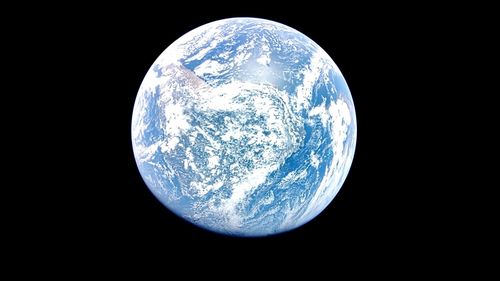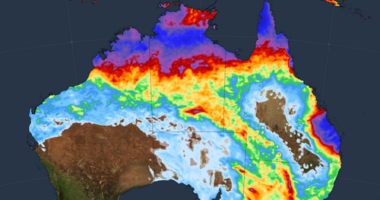Share this @internewscast.com
Earth is spinning faster this winter, making the days marginally shorter and attracting the attention of scientists and timekeepers.
More exceptionally short days are expected on July 22 and August 5, with predictions indicating they will be 1.34 and 1.25 milliseconds shorter than a standard 24-hour day, respectively.

However, if Earth’s increased rotation speed continues for several more years, Agnew suggests that it might become necessary to remove a second from the UTC. “A negative leap second has never occurred,” he stated, “but there is a 40 percent chance of one happening between now and 2035.”
What is causing Earth to spin faster?
According to Agnew, the shortest-term variations in Earth’s rotation are influenced by the moon and tides. Earth’s rotation slows when the moon is over the equator and speeds up when it is at higher or lower altitudes.
This effect compounds with the fact that during the summer Earth naturally spins faster – the result of the atmosphere itself slowing down due to seasonal changes, such as the jet stream moving north or south; the laws of physics dictate that the overall angular momentum of Earth and its atmosphere must remain constant, so the rotation speed lost by the atmosphere is picked up by the planet itself.
Similarly, for the past 50 years Earth’s liquid core has also been slowing down, with the solid Earth around it speeding up.
By looking at the combination of these effects, scientists can predict if an upcoming day could be particularly short.
“These fluctuations have short-period correlations, which means that if Earth is speeding up on one day, it tends to be speeding up the next day, too,” Judah Levine, a physicist and a fellow of the National Institute of Standards and Technology in the time and frequency division, said.
“But that correlation disappears as you go to longer and longer intervals. And when you get to a year, the prediction becomes quite uncertain.
“In fact, the International Earth Rotation and Reference Systems Service doesn’t predict further in advance than a year.”
While one short day doesn’t make any difference, Levine said, the recent trend of shorter days is increasing the possibility of a negative leap second.
“When the leap second system was defined in 1972, nobody ever really thought that the negative second would ever happen,” he noted.
“It was just something that was put into the standard because you had to do it for completeness.
“Everybody assumed that only positive leap seconds would ever be needed, but now the shortening of the days makes (negative leap seconds) in danger of happening, so to speak.”
The prospect of a negative leap second raises concerns because there are still ongoing problems with positive leap seconds after 50 years, explained Levine.
“There are still places that do it wrong or do it at the wrong time, or do it (with) the wrong number, and so on.
“And that’s with a positive leap second, which has been done over and over.
“There’s a much greater concern about the negative leap second, because it’s never been tested, never been tried.”
Because so many fundamental technologies systems rely on clocks and time to function, such as telecommunications, financial transactions, electric grids and GPS satellites just to name a few, the advent of the negative leap second is, according to Levine, somewhat akin to the Y2K problem – the moment at the turn of the last century when the world thought a kind of doomsday would ensue because computers might have been unable to negotiate the new date format, going from ’99’ to ’00.’
Climate change is also a contributing factor to the issue of the leap second, but in a surprising way.
While global warming has had considerable negative impacts on Earth, when it comes to our timekeeping, it has served to counteract the forces that are speeding up Earth’s spin.
“If that ice had not melted, if we had not had global warming, then we would already be having a leap negative leap second, or we would be very close to having it,” Agnew said.
If warming continues, its effect might become dominant.
“By the end of this century, in a pessimistic scenario (in which humans continue to emit more greenhouse gases) the effect of climate change could surpass the effect of the moon, which has been really driving Earth’s rotation for the past few billions of years,” Soja said.
At the moment, potentially having more time to prepare for action is helpful, given the uncertainty of long-term predictions on Earth’s spinning behaviour.
“I think the (faster spinning) is still within reasonable boundaries, so it could be natural variability,” Soja said.
“Maybe in a few years, we could see again a different situation, and long term, we could see the planet slowing down again.
“That would be my intuition, but you never know.”













